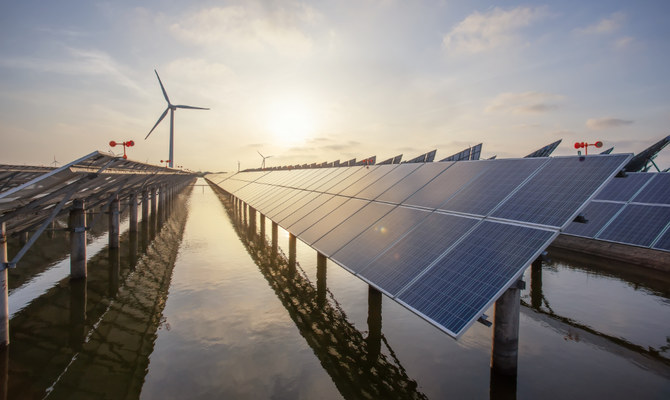
- ARAB NEWS
- 15 Jul 2025

With the increased awareness of climate change and global inequality, how to generate sustainable clean energy in the future is a hot topic. There is a debate that the application of ethical investment decisions by societies at large can lead to a more sustainable economic and social basis.
Gulf countries are taking the lead in this respect and seem more determined to implement environmental, social and governance criteria in the sector to ensure their long-term viability in meeting demand. It is also vital that oil producers remain clean energy suppliers to retain their geopolitical standing in the future, as others disinvest from fossil fuels.
Saudi Arabia and other Gulf countries like the UAE have moved quickly to demonstrate how climate change innovation offers a major opportunity to steer economies and markets in a greener, more sustainable direction.
These range from energy transition to green finance, enabling technological innovation, and collaboration between the private and public sectors in producing a green energy future.
It would seem that improvements in environmental performance achieved with better technology lead to cost savings and process efficiency and result in more sustainable companies outperforming their counterparts both on the stock market and in their accounting performance.
Gulf stock markets have a lot to gain by implementing such measures. The Abu Dhabi and Saudi exchanges were both among the top 10 global performers in 2021, with the former topping the rankings with returns of 65 percent for the year, and the latter gaining 30 percent.
Among the steps that can be taken are accelerating green innovation globally, rewarding private sector investment and research and development, and discouraging high-polluting technologies and supporting cleaner, sustainable ones
Gulf countries are already doing this through their energy mega projects, with Saudi Arabia announcing such initiatives at the recently concluded Future Minerals Forum in Riyadh.
Saudi Arabia and the UAE — the first- and third-biggest oil and gas producers in OPEC — are vying to become world-leading exporters of blue hydrogen and ammonia, to produce a clean energy brand and be market leaders in a future energy world.
To achieve this, Aramco and ADNOC are expected to leverage their carbon capture utilization and storage projects. The Uthmaniyah facility in Saudi Arabia and Reyadah in the UAE can each capture 800,000 tons of CO2 a year, which could potentially be used to produce blue hydrogen. ADNOC plans to expand its capacity to 5 million tons by 2030.
Energy dependent countries are ready to import these new products. Aramco exported the world’s first blue ammonia shipment from Saudi Arabia to Japan in September 2020 for use in power generation.
In January 2021, ADNOC struck the first fuel ammonia cooperation deal with Japan, which wants to achieve carbon neutrality by 2050, with hydrogen and ammonia accounting for about 10 percent of its power generation mix in 30 years, from zero percent currently.
Investors are also ready to join Gulf producers. ADNOC has attracted Fertiglobe, a joint venture with Dutch chemicals company OCI, to invest in its blue ammonia project that will produce 1 million tons a year.
Similarly, Saudi Arabia’s planned zero-carbon city Neom has formed a joint venture with New York-listed Air Products and Riyadh-based ACWA Power to create a $5 billion green hydrogen project, the world’s largest. It is expected to produce about 1.2 million tons of ammonia by 2025, as announced at the Future Minerals Forum.
Other Gulf joint ventures are to be expected, with the UAE having a greater ability to produce green hydrogen and ammonia given its bigger renewable energy installed capacity, which was 2.54 gigawatts at the end of 2020, compared with Saudi Arabia’s 413 megawatts, based on figures from the International Renewable Energy Agency.
The ESG climate issues are going to be with us for a long while and it is notable that the Saudi LEAP initiative will start the debate to be continued at Abu Dhabi COP28 next year.
With the financial resources at their disposal, Gulf hydrocarbon producers have plenty to offer in terms of enabling and delivering creative, innovative initiatives such as carbon capture and reuse as well as the new forms of clean energy the world needs.